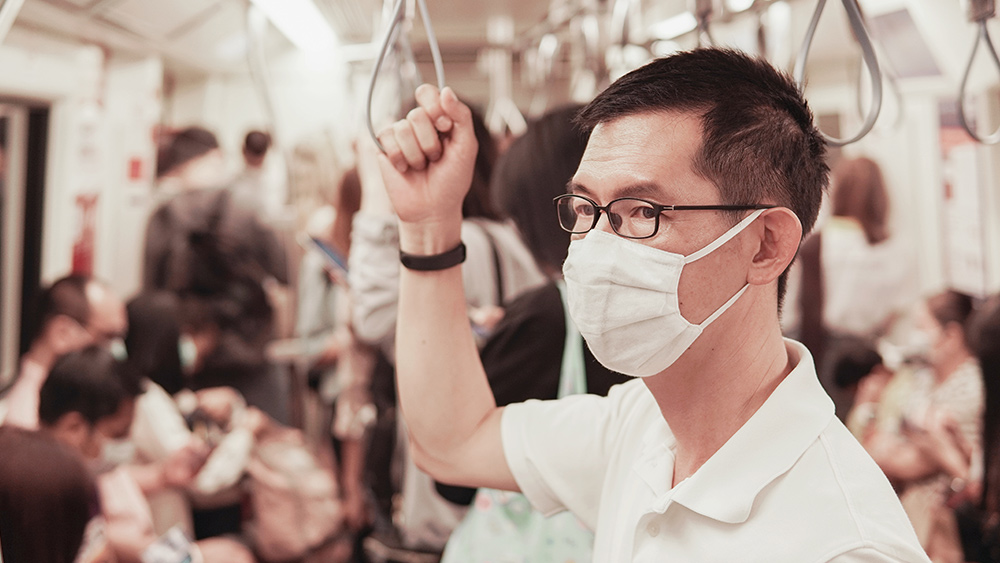Chinese citizens decry draconian lockdown measures in China’s newest coronavirus hotspots
08/13/2020 / By Franz Walker

As a third wave of the Wuhan coronavirus (COVID-19) hits several cities in China, authorities have implemented strict new quarantine rules in the regions. The strict new rules, however, have not gone well with some citizens, who have spoken out against them.
Coronavirus infections have spiked in both the northwestern region of Xinjiang and the northeastern city of Dalian. In response, the government has implemented strict quarantine rules, with residents being punished harshly for breaking regulations.
Residents have since spoken out, stating that, not only have their lives been severely restricted but that authorities have forbidden them from posting online about the outbreak.
Cities locked down after a new surge in cases
The city of Dalian in northeastern China is experiencing a third wave outbreak of the coronavirus. In response, the city has implemented strict measures in an attempt to stem the spread of the disease. (Related: Panic grips northeastern Chinese city hit by new coronavirus outbreak.)
The lockdown measures, which disallow residents from leaving their homes, have angered some residents with how draconian they are.
Talking to the Epoch Times, Ping Li, a resident of the Daoxin Jiayuan residential compound in Dalian Bay, stated that authorities were keeping them in their buildings using security guards and unmanned drones. According to Ping, anyone caught violating the rules is detained for seven to 15 days.
In addition, Ping said that her residential complex was required to test for COVID-19 four times, and each time the restrictions were getting tighter.
“The restrictions are getting tighter and tighter … You can’t even throw the trash out now,” Ping said. “The drones are monitoring us. It can capture whether there were people outdoors.”
Similar draconian measures have been implemented in the city of Urumqi, the capital of the Xinjiang region. Here, a surge in coronavirus infections has caused the government to declare a “wartime state” in the city.
As with Dalian, the restrictions in Urumqi have severely limited the everyday lives of citizens. In addition, citizens have also been prohibited from posting online about the outbreak.
The restrictions on posting about the outbreak online may have something to do with the sensitive situation in the region. Xinjiang is home to mainly Muslim Uyghur people and other Turkic minorities and has been subject to intense state control.
To keep these minorities in line, Beijing has established a system of controversial detention camps where hundreds of thousands of mostly Ethnic Uyghurs have been detained as part of a mass “de-radicalization” program.
With these detention camps already under scrutiny from the international community, word of a mass outbreak of COVID-19 in the camps would be a PR nightmare for Beijing.
Lockdowns cause food prices to soar
More than just restricting citizen’s lives, the draconian measures have also impacted them economically.
With the restrictions, residents in both cities can only buy from online stores or government-approved volunteers. This has resulted in prices rising even as many citizens remain unable to go to work and earn money due to the restrictions.
Talking to the Epoch Times, Urumqi resident Li Quing has said that “food is very expensive, especially meat and fruit.” Li recalls buying some grapes over a week ago at $1.3 per pound. During the same time last year, grapes only cost $0.63 per pound. In addition, the price of meat has gone up to $6.4 per pound from $4.9 per pound in late July.
The same is also happening in Dalian, with Ping confirming that food is becoming really expensive. In addition, the quality of the food being sold in the official online platform was suspect.
“But the ones you get are often rotten,” Ping said of peaches she buys from the official platform for $0.72 per piece.
The negative effects that Chinese’ authorities’ draconian lockdowns are having on its citizens raise questions of whether or not these are really worth it. However, with Beijing seemingly more focused on covering up the country’s real coronavirus caseload than just stopping their outbreaks, it’s likely that addressing these isn’t high a high priority for Chinese authorities.
Follow Tyranny.news to learn more about how the Chinese Communist Party is suppressing its own citizens.
Sources include:
Submit a correction >>
Tagged Under:
China, coronavirus, covid-19, Dalian, Flu, food, food prices, infections, lockdowns, outbreak, pandemic, quarantine, superbugs, Urumqi, Uyghur, virus, Xinjiang
This article may contain statements that reflect the opinion of the author
RECENT NEWS & ARTICLES
Infections.News is a fact-based public education website published by Infections News Features, LLC.
All content copyright © 2018 by Infections News Features, LLC.
Contact Us with Tips or Corrections
All trademarks, registered trademarks and servicemarks mentioned on this site are the property of their respective owners.





















